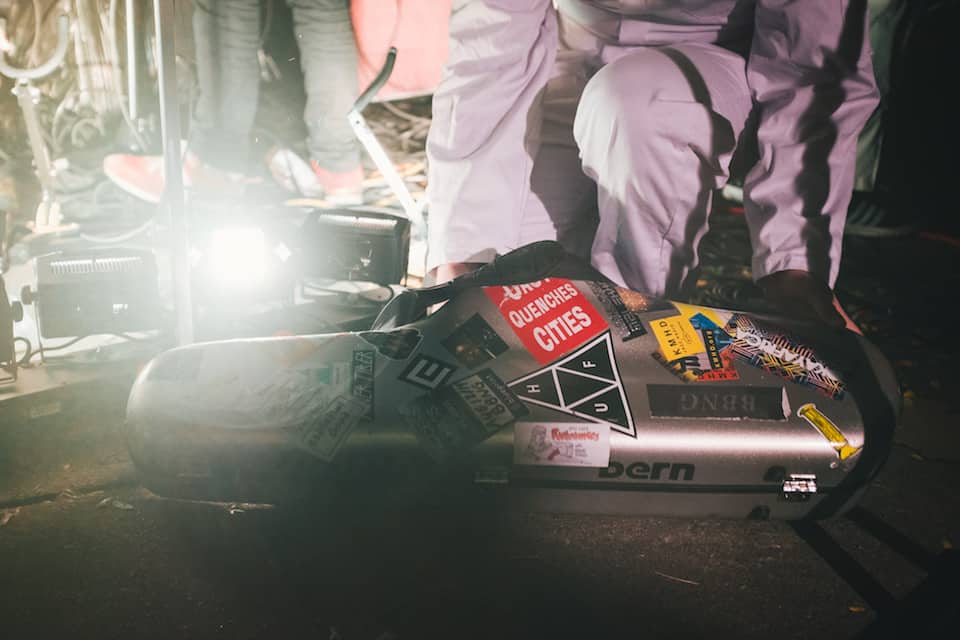Throughout Toronto’s multifaceted arts scene, entertainment businesses seek to cater to as many demographics as possible. From concert series’ to art exhibits, the city is home to a number of all-ages events seeking to destroy the 19+ barriers that those that are underage face. But what happens when the venues for safe and inclusive art appreciation become the same ones accused of negligence, sexual assault, and substance abuse?
Earlier this month, a Tumblr blog titled “gushgoddess” released a long and detailed post outlining a series of allegations towards Johnnyland, an all-ages concert series founded to “serve the artistic youth of Toronto.” The post, which has since been removed due to legal threats by Johnnyland organizers, compiled several anonymous testimonies outlining a series of allegations towards Johnnyland executives and members of the community. The allegations accused Johnnyland executives of being “rape apologists,” and for having “had relations with intoxicated underage women.”
Following a flurry of online backlash, Johnnyland responded to the blog post through a Facebook status. “To be absolutely clear, Johnnyland is not an organization that would ever condone rape apologists, sexual or physical assault,” it reads. “But at the same time, [Johnnyland] cannot apologize for things we are not guilty of, and cannot condone one misinformed anonymous blogger, however well intentioned, to make untrue accusations that run against everything Johnnyland stands for.”
Regardless of the validity of the specific claims found in the Tumblr post, the controversy has opened a dialogue over social media about the lack of safety at similar all-ages shows. Many concertgoers have shared experiences – ranging from the unpleasant to the traumatic – which highlight the ugly side of shows like these.
Elliott Gallagher-Doucette, a Ryerson University student who’s attended Johnnyland shows both as a spectator and performer, recalls the underage drinking and use of illicit substances he frequently witnessed at the shows. In response to the concert series’ alleged reputation as an outlet for underage drinking, he tells The Varsity, “I can’t see a way that [Johnnyland] couldn’t have noticed.” Gallagher-Doucette alleges that there were clear instances of underage substance abuse: “There were people being taken away in ambulances because they drank too much or had done too much M.”
In an email to The Varsity, spokespeople from Johnnyland wrote: “The safety and security of Johnnyland guests is a top priority.” They insist to have always upheld a zero tolerance policy for underage drinking, and are “well aware that it is illegal to serve alcohol to anyone under 19.”
“Security staff search the bags and coats of all guests upon entry for alcohol, illicit substances and weapons,” though “over the past three and a half years… a few incidents of intoxicated guests were brought to our attention.” Johnnyland has also had a Safety Security Team and general code of conduct in effect since May of 2015, which encourages guests to report dangerous or inappropriate happenings, and warns that anyone caught under the influence will be removed from the venue.
Brooklynne Morrison, a frequent performer at Johnnyland shows, was not surprised to hear of the sexual assault accusations tied to the organization, “literally just a bunch of grade 10’s hooking up while on M.”
Unfortunately, the Johnnyland allegations aren’t a handful of horror stories in an otherwise safe and inclusive all-ages scene. Morrison, while displeased with Johnnyland’s supposed lack of crowd control, recognizes that things aren’t entirely different at other underage shows she’s played at. “Even the shows at the Cinecycle or the Kapisanan, kids were always getting too drunk,” she recounts. “I just know for a fact that underage shows are just so bad.”
Nuit Blanche, which seeks to transform Toronto into a city-wide art gallery, has in recent years become little more than an excuse for teens to consume mass amounts of drugs and alcohol. This staple of Toronto’s art scene took a hit this year after stabbings, reports of guns, and a standoff between police and a violent mob broke out at Yonge-Dundas Square.
Even the University of Toronto’s attempts at all-age events have not been faultless. Frosh Week has long been equated with the same types of alcohol and substance abuse that are purported to plague the city’s all-age events. Despite the strides Frosh Week event organizers have taken in recent years to implement safe and alcohol-free activities, the substances inevitably find their way into the festivities.
Can Toronto’s all-age scene bounce back from the accounts of substance abuse, physical and sexual assault that have been reported by people from these very same communities?
Morrison believes the only hope of progress is for these events to build a better supportive community. “There’s so much there that should have been in place,” she notes, referring to the Johnnyland shows. “Like, how to get home, or, what to do if someone’s sick, instead of just kicking them out.”
Johnnyland is adamant that they will continue to “provide safety and security at levels that exceed industry standards,” yet are “also open to learning new methods to make [their] events as safe as possible.”
“Gushgoddess,” the publisher of the blog post that lit the flame for the entire controversy, offered their own proposal for moving forward in the original post. “We cannot fix these issues, especially when these spaces are rooted in this violence towards young women, trans and non-binary people. Instead we must boycott and burn down these spaces, and from the ashes build our own.” For the sake of the artistic youth of Toronto, perhaps a fresh start would serve them best.


